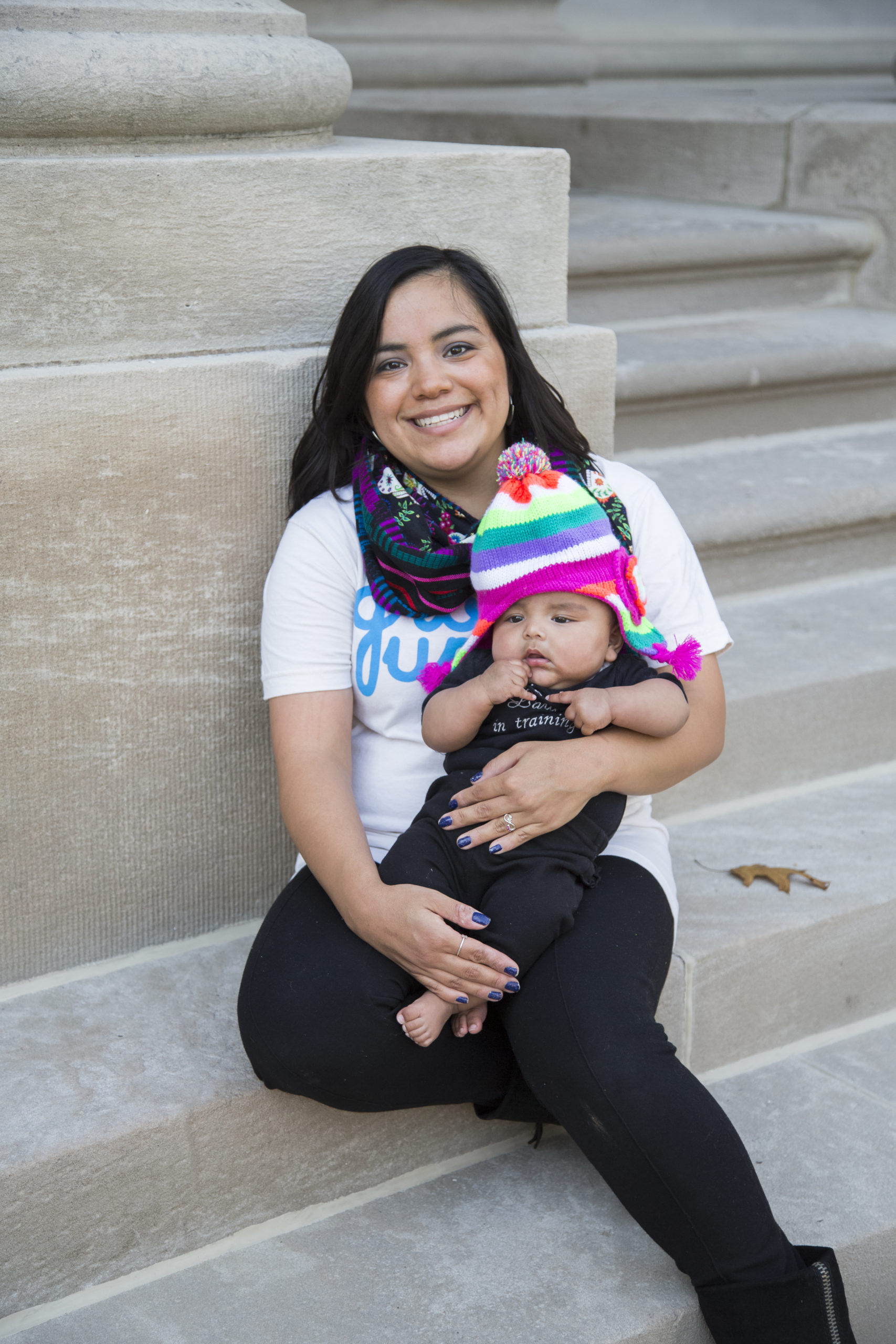 Alyssa Rodriguez attends First Mennonite Church in Iowa City, Iowa and works as a Family Support Worker for marginalized populations while also learning the ins-and-outs of motherhood with her beloved daughter, Zulema.
Alyssa Rodriguez attends First Mennonite Church in Iowa City, Iowa and works as a Family Support Worker for marginalized populations while also learning the ins-and-outs of motherhood with her beloved daughter, Zulema.
A year ago, I left the Ecuadorian village of cement homes just as the sun was breaking free from the clouds, giving way to an elusive mountain peak—one that greeted me when I was least prepared and least expected it. I made the last trip down a hill that had recently been paved, riding in a rarely seen car, past the homes of people who had come to know me as “neighbor.” I had taken many an exhausted climb up that same hill in my nine months in Ecuador. Each step and accompanying sight gave way to a landscape that made sense of my breathlessness when I reached the top.
On my last day in Ecuador a year ago, I descended the hill—viewing for perhaps the last time the most beautiful sky views I had ever witnessed, nestled by some of the most impoverished living conditions I had ever witnessed—to go to the Quito airport—the one I had arrived at just nine months before.
I was ending my 2-year mission term prematurely. I was with child.
I was in the very beginning stages of accepting the fact that I was raped. I felt alone in a foreign world and little did I know the slowly unfolding process of grief that would take place alongside the birth pangs as my body changed to nourish and grow a new life inside me.
After voicing to my Ecuadorian church community what happened, telling my loved ones via technology and similarly sharing with my home church what had become of the seeds I worked to plant in Ecuador, the uphill climb to healing began.
I didn’t know it then, but I was grieving the loss of a dream—the life I had come to Ecuador to create. I was in shock and denial. I was angry and heartbroken. I was numb. I walked around as though a huge sign saying “shame” lay across my chest. I imagined that sign was the first thing people noticed about me upon entering a room. I was a failure. There was no need to question my worth because by that point I had convinced myself I had none.
In the beginning stages of a pregnancy I could not have imagined, I could not fathom what was in store. It was hard to say where my list of questions began and ended. It was Advent season. I was a young, single woman. I was in disbelief. You can’t make these things up.
At times, I denied the life within me, ashamed because of how it was conceived—but ultrasounds and my growing body revealed more and more that this was reality. While so many people asked that popular question, “are you having a lot of sickness?” I would respond “no.” But what I wouldn’t say was that instead of morning sickness, I internally lived in an emotional war field, day after day. (I would have preferred the morning sickness.)
In the darkness of Advent season, many long to arrive already to the other side of the waiting. The pain is unbearable and it’s paired with a mystery that is too much to take. Getting to the answers and celebrating seems much more worthwhile.
In speaking about our faith journeys, Nadia Bolz-Weber coins the term, “spiritual physics” to explain the constant resurrection going on in and around us. God doesn’t allow things to die without allowing room for new life. This Advent, I understand what I wasn’t ready to a year ago: it is in witnessing the losses and new lives along our faith journeys—often in the most barren of places—where God can be most significantly witnessed. God’s work makes sense of the most terrifying of circumstances—like majestic skies above homes made of cement and mud tiles. And certainly like the new amazing life of my daughter—which has become a life that I am privileged to be a part of.
Her name means peace and as I reflect on how far we’ve come since last Advent season, I realize that every act of love towards her is an act of rising up from where I’d been buried when I was raped. It is a radical act of love for not only her, but for me.
In ways too amazing to be expected, God makes sense. The other side of waiting is a joy and a peace unlike any other.
But before the waiting is over this Advent, let us seek to embrace the ways God is working in our midst—albeit painful and barren. Perhaps this will allow us to be even more grateful when the peace and joy arrive.

